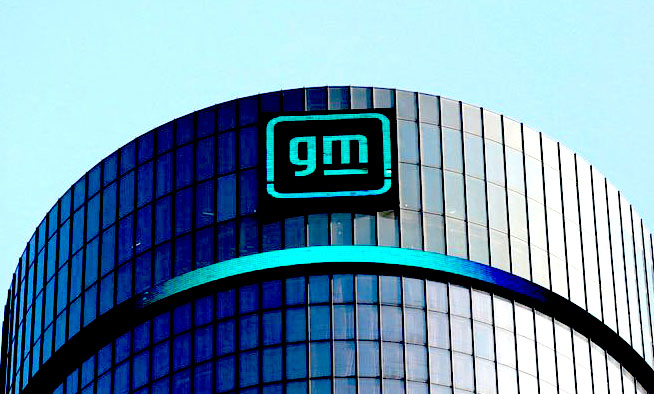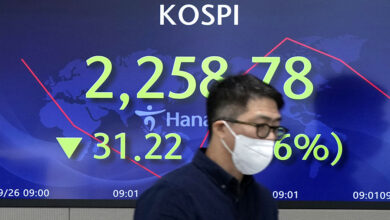Global automakers are set for a rude awakening in China.

Beijing: If foreign automakers believe they can continue to dominate in China in the electric era, they may be in for a rude awakening.
General Motors (NYSE: GM) and Volkswagen (ETR:VOWG p), kings of the combustion era, are lagging behind local firms in China’s expanding electric vehicle (EV) industry, a crucial market for funding and developing their electric and autonomous goals.
Tianna Cheng’s first dilemma while purchasing a $180,000 Xpeng (NYSE: XPEV) electric crossover was whether to choose a BYD or a Nio (NYSE: NIO) instead; she did not seriously explore foreign brands.
“Had I been in the market for a gasoline-powered vehicle, I might have researched international brands,” the 29-year-old stated as she drove home from work. However, aside from Tesla (NASDAQ:TSLA), I observed few international firms adopting modern smart technologies correctly.
Electric car sales in China’s roughly $500 billion auto market, the world’s largest, are soaring, fueled by demand from consumers such as Cheng.
According to data from the China Association of Automobile Manufacturers, the number of new energy passenger cars – pure EVs and plug-in hybrids – more than doubled in the first four months of 2022, reaching 1.49 million vehicles.
The cleaner technologies accounted for 23 percent of China’s passenger car market, where overall vehicle sales decreased by 12 percent, suggesting a precipitous reduction in demand for gasoline-powered vehicles.
According to the China Passenger Car Association, there are no foreign brands among the top 10 automakers in the new energy vehicle (NEV) market this year, with the remarkable exception of electric pioneer Tesla in third place.
All the remaining brands are Chinese, including BYD, Wuling, Chery, and Xpeng. BYD, the market leader in China, has sold over 390,000 EVs in the country this year, more than three times as many as global market leader Tesla. The top-ranked traditional automaker in terms of EV sales is Volkswagen’s joint venture with FAW Group, which ranks 15th.
Cheng stated that international brands, such as the Buick Velite 7 and Volkswagen’s ID. series, were unable to provide her with what she desired: an electric vehicle (EV) with smartphone-like functionality.
“Foreign companies are so far removed from my life and lifestyle,” said Cheng, whose digital assistant manages connections to apps such as Alipay and Taobao and “does everything for me, from opening the windows to turning on the music,” while the software in her car receives over-the-air updates.
It’s quite a reversal. Since the 1990s, global brands have dominated in China, capturing an average of 60–70 percent of passenger car sales in recent years.In the first four months of 2022, they captured 52 percent, with a 43 percent share for the month of April.
Nissan (OTC: NSANY) CEO Makoto Uchida warned Reuters that certain brands “may vanish in three to five years” in China, highlighting the magnitude of the problem facing established automakers.
“Local brands are becoming stronger,” said Uchida, who was once Nissan’s China chief, adding that the quality of electric vehicles (EVs) produced by Chinese manufacturers had improved dramatically over the past few months.
“There will be significant change in China, and we must keep a close eye on the situation,” said the CEO, adding that automakers must be agile in the design, development, and introduction of new models.
“If we were slow in these areas, we would fall behind.”
‘HI-TECH NATIVES’
Bill Russo, a former Chrysler executive who is now the chairman of the Shanghai-based consulting firm Automobility, stated that global brands must immediately turn the situation around because they control less than 20% of China’s only growing auto market.
“Chinese brands are winning the race to EV,” Russo said, adding that consumers’ shift toward cars that are effectively smartphones on four wheels was irreversible and that traditional automakers were struggling to stay up.
The customer’s desire for a “user-centric digital services experience” with an emphasis on interface, connection, and applications, according to him, is undergoing a secular transition toward technology.
Traditional businesses are not technological natives.
For most of the last two decades, Volkswagen Group brands, including Volkswagen, Audi, Bentley, Lamborghini, Porsche, and Skoda, along with General Motors brands like as Buick, Chevrolet, and Cadillac, have dominated the market for most of the last two decades.
According to LMC Automotive, the two global automakers held around 13% and 12% of China’s auto market share, respectively, in 2017. GM also holds a 44 percent ownership in the locally managed SAIC-GM-Wuling Auto (SGMW) joint venture and includes its sales in group figures, despite the fact that SGMW does not produce American brands but rather Wuling and Baojun automobiles.
According to two individuals familiar with the automaker’s business in China, GM is now focusing on attracting younger buyers in large cities who have mostly shunned its vehicles.
The group has revealed plans to invest more than $35 billion globally by 2025 on electrification, including the launch of more than 30 new EVs, including more than 20 in China, beginning this year with the introduction of the all-electric Cadillac Lyriq crossover SUV.
According to two sources, the Lyriq debut will be followed by the introduction of an electric Buick SUV and a smaller, sportier electric crossover, both of which are also scheduled for this year.
According to LMC Automotive, Buick sales have decreased 32 percent over the past five years to 828,600 vehicles in 2021, while Chevrolet sales have decreased by more than half to 269,000 vehicles.
GM told Reuters that it planned to install capacity to create 1 million EVs annually in China by 2025, saying that demand for the Buick Velite NEV family and Chevrolet Menlo EV “both rose dramatically” in 2021 and the first quarter of this year.
The company stated that it was adopting intelligent technologies, such as hands-free driver assistance on highways, “aviation-grade” cyber security, and over-the-air software updates.
AUTOBAHN SPEED?
Volkswagen, which will invest approximately $55 billion globally on electric vehicles by 2026, released its new-generation ID. series in China at the beginning of last year, but fell short of its aim of selling 80,000 to 100,000 vehicles. It intends to sell between 160,000 and 200,000 ID. vehicles this year, but has only sold 33,300 as of April.
According to a GM source and a Volkswagen insider, a major concern for international companies is that their new EVs are being created with a greater emphasis on performance and durability with the American and European markets in mind.
“Autobahn speeds? In the majority of China’s major cities, traffic is so congested that drivers cannot exceed 60 kilometers per hour on most days “According to a source close to GM with knowledge of the automaker’s product plans and product-development procedures.
Volkswagen stated that demand for NEVs in China was firmly tied to the concept of “smart cars” and that it was investing in local R&D, particularly software.
“Our strategy will allow us to accomplish our lofty goals in China. By 2030, we also hope to be the market leader in e-vehicles, thereby ensuring Volkswagen’s continued dominance in China “it added.
The difficulty for global businesses is to find a way to appeal to consumers in large cities with disposable incomes, such as Cheng in Beijing and Li Huaqing, a civil engineer from Shanghai.
Li regarded Japanese and German manufacturers only lukewarmly when he purchased his BYD electric sedan for 290,000 yuan (with insurance) last year.
“It seems to me that only Tesla stands out among American brands,” he said from his parked BYD vehicle in Mianyang, Sichuan province, where he is working on a project. To me, the other brands are not even comparable.
($1 = 6.6499 Chinese yuan renminbi)





